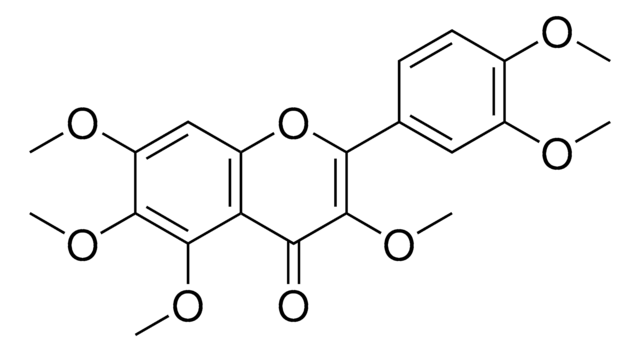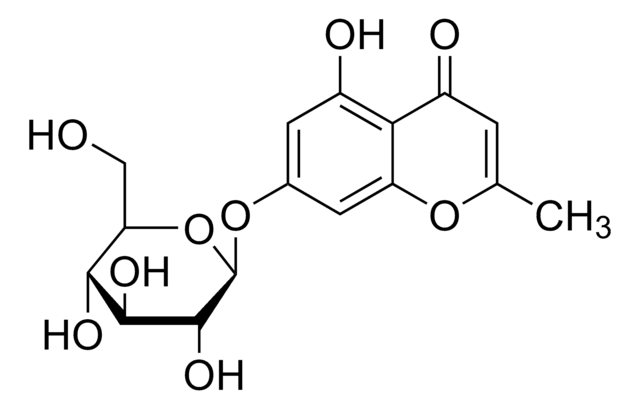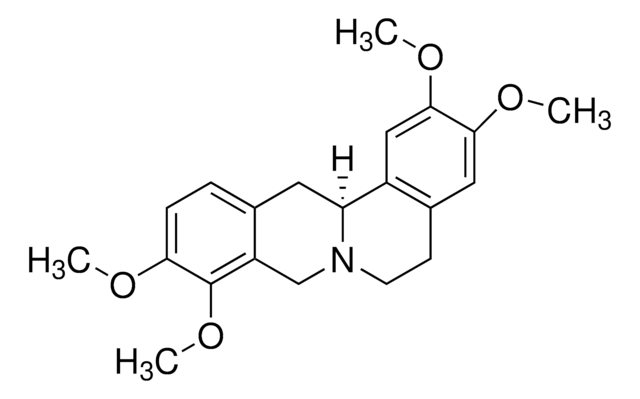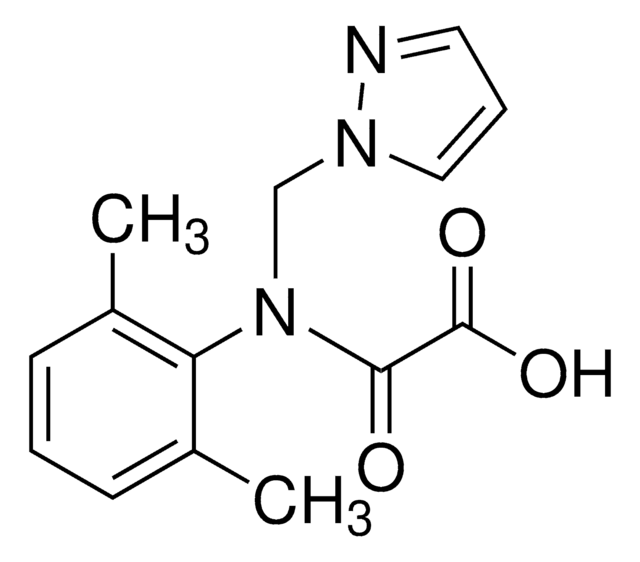SMB01012
Mussaenosidic acid
≥90% (LC/MS-ELSD)
Synonym(s):
Cyclopenta[c]pyran-4-carboxylic acid, 1-(β-D-glucopyranosyloxy)-1,4a,5,6,7,7a-hexahydro-7-hydroxy-7-methyl-, [1S-(1α,4aα,7α,7aα)]- (ZCI)
About This Item
Recommended Products
biological source
plant
Assay
≥90% (LC/MS-ELSD)
form
solid
mol wt
376.36
solubility
water: soluble
application(s)
metabolomics
vitamins, nutraceuticals, and natural products
storage temp.
−20°C
General description
Application
Biochem/physiol Actions
Features and Benefits
- High quality compound suitable for multiple research applications
- Compatible with HPLC and mass spectrometry techniques
Other Notes
Storage Class Code
11 - Combustible Solids
WGK
WGK 3
Flash Point(F)
Not applicable
Flash Point(C)
Not applicable
Certificates of Analysis (COA)
Search for Certificates of Analysis (COA) by entering the products Lot/Batch Number. Lot and Batch Numbers can be found on a product’s label following the words ‘Lot’ or ‘Batch’.
Already Own This Product?
Find documentation for the products that you have recently purchased in the Document Library.
Our team of scientists has experience in all areas of research including Life Science, Material Science, Chemical Synthesis, Chromatography, Analytical and many others.
Contact Technical Service








